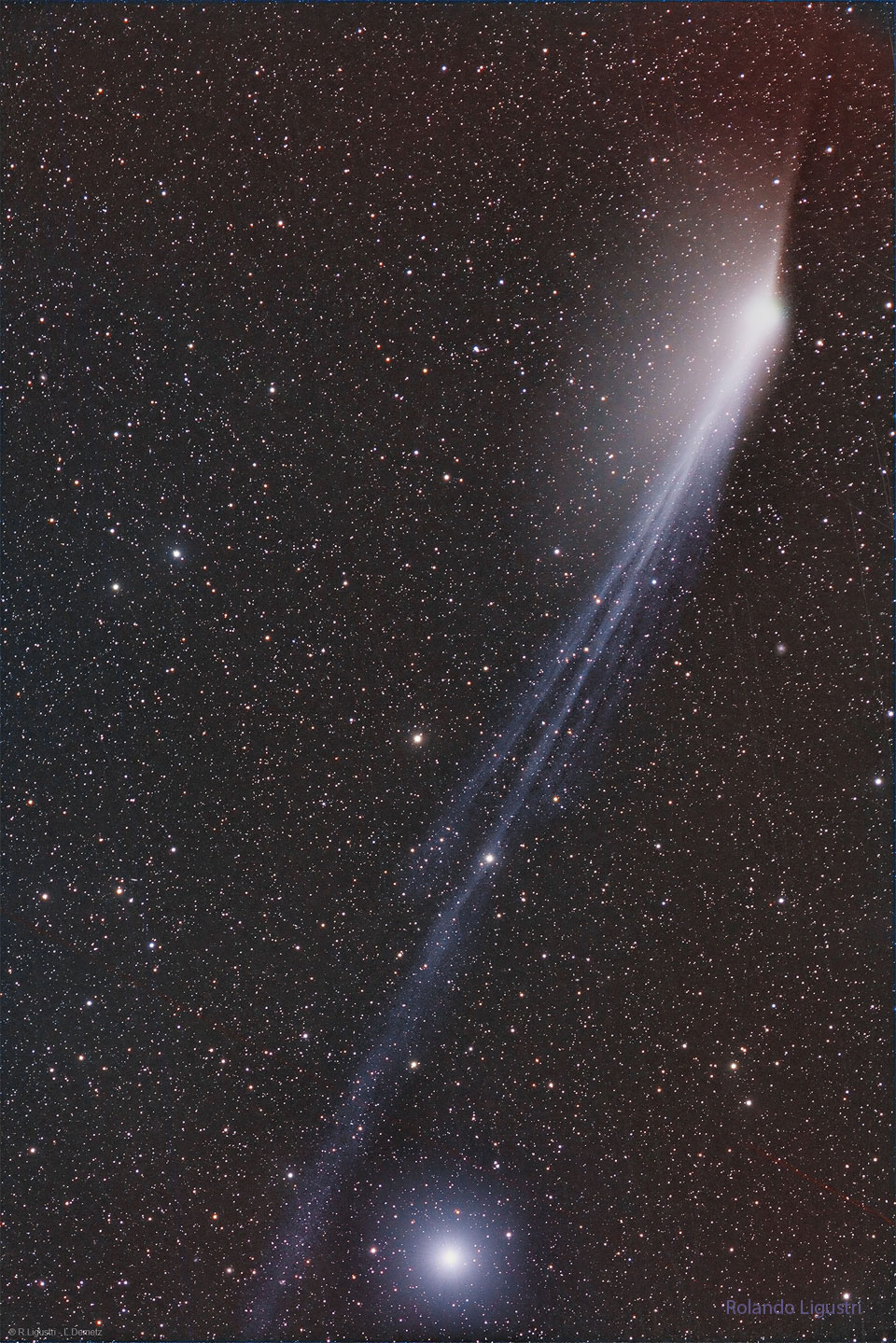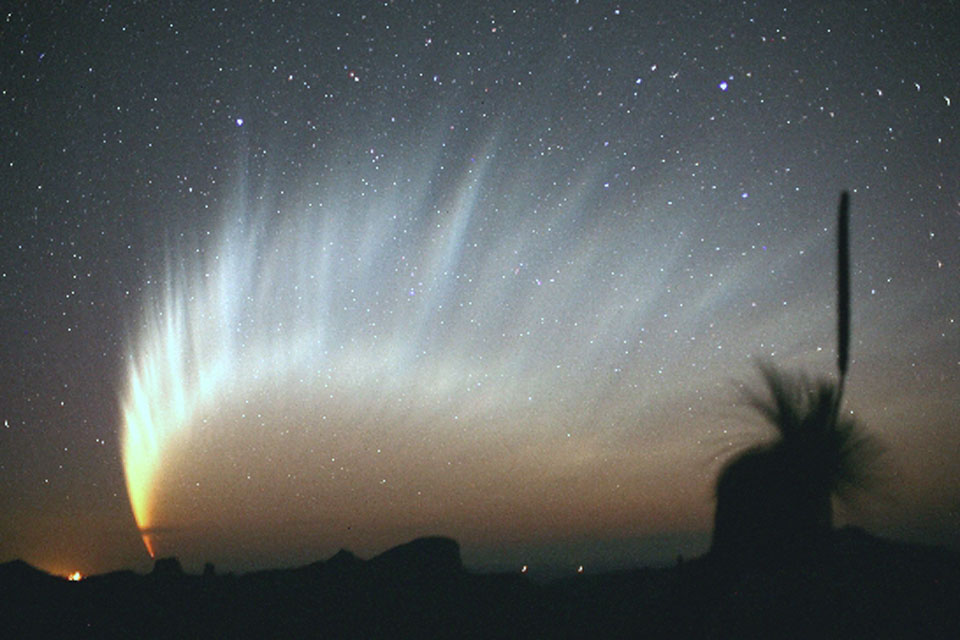Lee wrote: ↑Tue Jun 04, 2024 5:12 pm
I love this picture! It looks like something tore the night sky and is letting light in.
I like it too!

Another beautiful picture of seemingly two-tailed Pons-Brooks was recently posted in the Recent Submissions thread (for May) by macnenia, where the comet seemed to have caught small cluster NGC 2017 (actually an asterism) in its fishing net ion tail:

macnenia wrote about his picture:
The anti-tail, apparently pointing towards the Sun, is an optical illusion. The comet sloughs off particles with a wide range of sizes. The really fine stuff is blown around by the solar wind, but the heavier material is largely unaffected and so stays close to where it was ejected by the comet, but maintaining the velocity of that ejection. Therefore it doesn't follow the comet along, especially as the comet, being pulled strongly by the Sun's gravity, maintains a curved (elliptical) trajectory. And so, behind where the comet has been, there is a curved line of coarse particles, holding to the comet's previous position, or perhaps having drifted but not too far. As the Earth passes through the plane of the comet's path, this thicker swathe of particles, changes from a diffuse curve, not so easily seen, to a thick line, where the areas of greater density are aligned behind each other.....thus we see a bright thicker line, surrounded by the diffuse and much more spread out smaller particles.
Not sure I got all that, but I mostly got it!

Some comets are more spectacular than others. Perhaps the most amazing comet seen in the 21st century is Comet McNaught. I never saw it, either because it was only visible from southerns skies, or else because my Swedish skies were relentlessly overcast, as they usually are in January. But what a gem of a comet that was!!!
I just want to add a few words about the bright star, alpha Leporis, that is visible in the lower part of today's APOD. This star is too bright for Gaia and too distant for Hipparcos, humanity's two greatest instruments for measuring parallaxes and thus distances. The star is however classified as a supergiant, albeit a lesser supergiant of luminosity type Ib, and since its spectral class is F0, it will emit much and possibly most of its light at visible wavelengths. If we are to believe Hipparcos' very iffy parallax, the distance to this star may be more than 2000 light-years, and its radius may very well be large enough to swallow Venus! Wowzers!
Wikipedia claims that alpha Leporis is a yellow-white star. Don't you believe it. Our color vision has evolved to see sunlight (and most definitely daylight) as neutral or white, and because alpha Leporis is some 1000-2000 degrees hotter than the Sun, we will, under the right conditions at least, see this star as bluish.
Just the way it looks in the APOD, in other words!

Ann
 Comet Pons-Brooks Develops Opposing Tails
Comet Pons-Brooks Develops Opposing Tails




